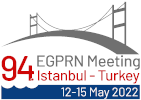Primary health care influencing policy actions: Prevalence of SARS-CoV-2 antibodies among Primary care attendees
Beesan Maraqa, Zaher Nazzal
Keywords: COVID-19; Seroprevalence; antibody; Primary Health Care; Policy
Background:
Seroprevalence testing provides a more detailed view of COVID-19's distribution and helps determine the effectiveness of public health interventions and planning for additional prevention and control measures.
Research questions:
What is the prevalence of SARS-CoV-2 antibodies in the Palestinian population targeting PHC centres' attendants?
Are there regions where the level of antibodies are higher than others?
What are the sociodemographic characteristics of those with COVID-19 antibodies?
Method:
We utilized a cross-sectional design to analyze serological and epidemiological data of 1299 adult primary health care attendees in Palestine from 1 November to 31 December 2020. All serum samples were first tested for total antibodies using the ELISA test. Then, we measured the titer of IgM, IgG, and IgA-specific antibodies using ELISA.
Results:
The overall seroprevalence of SARS-CoV-2 antibodies was 24·2% (95%CI 21·9%–26·6%). Seroprevalence was significantly higher among people living in South of the West Bank (aOR 2·3, 95% CI: 1·649-3·216), people encountered COVID-19 like symptoms [aOR 3·8, 95% CI 2·7-5·2], those who had contact with COVID-19 patients (aOR 1·48, 95% CI 1·05-2·07), those with hypertension (aOR 1·5, 95% CI 1·06-2·3) and non-smokers (aOR 0·45, 95%CI 0·29-0·67). Specific antibodies IgM, IgG, and IgA were positive at 13·8% (95%CI: 9·1%-19·8%), 88·5% (95%CI: 82·8%-929%), and 42·5% (95%CI: 35·1%-50·3%), respectively.
Conclusions:
SARS-CoV-2 antibodies were prevalent among PHC attendees, and levels were higher among females, non-smokers, those with the previous contact with COVID-19 patients, and those who lived in COVID-19 high-prevalence areas. Specific long-term immune antibodies, primarily IgG and IgA, have been identified for up to six months. To characterize COVID-19 and its trend, continuous monitoring and testing of SARS-CoV-2 antibodies are recommended. This study was communicated to higher levels and impacted Palestine's policy decisions regarding COVID-19.
Points for discussion:
Primary health care research has the potential to influence policy, particularly because primary care patients are representative of the population.
At one point, COVID-19 immunity was determined by the presence of neutralizing antibodies, and numerous debates still exist.
As primary care providers, our influence spans the spectrum from individual to public health.

